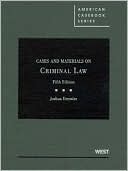Little Pink House: A True Story of Defiance and Courage
Suzette Kelo was just trying to rebuild her life when she purchased a falling down Victorian house perched on the waterfront in New London, CT. The house wasn't particularly fancy, but with lots of hard work Suzette was able to turn it into a home that was important to her, a home that represented her new found independence. \ Little did she know that the City of New London, desperate to revive its flailing economy, wanted to raze her house and the others like it that sat along the waterfront...
Search in google:
Suzette Kelo was just trying to rebuild her life when she purchased a falling down Victorian house perched on the waterfront in New London, CT. The house wasn't particularly fancy, but with lots of hard work Suzette was able to turn it into a home that was important to her, a home that represented her new found independence. Little did she know that the City of New London, desperate to revive its flailing economy, wanted to raze her house and the others like it that sat along the waterfront in order to win a lucrative Pfizer pharmaceutical contract that would bring new business into the city. Kelo and fourteen neighbors flat out refused to sell, so the city decided to exercise its power of eminent domain to condemn their homes, launching one of the most extraordinary legal cases of our time, a case that ultimately reached the United States Supreme Court. In Little Pink House, award-winning investigative journalist Jeff Benedict takes us behind the scenes of this case — indeed, Suzette Kelo speaks for the first time about all the details of this inspirational true story as one woman led the charge to take on corporate America to save her home. The New York Times - Dahlia Lithwick Benedict has pieced together a fascinating narrative, using e-mail messages, planning documents, interviews and personal diaries to produce a sordid account of ruthless local politicians working hand-in-medical-glove with big business to drive hard-working Americans from their homes…As a story about injustice, Little Pink House is a success. Nobody can be immune to the plucky redhead, the zany deli owner or the terrified senior citizens, battling to live quietly in the homes they love.
\ From Barnes & NobleA Selection of Barnes & Noble Recommends\ The arresting story of how a single woman's struggle to keep a small cottage evolved into a landmark case before the U.S. Supreme Court.\ \ The little pink house on this book's cover belonged to Suzette Kelo; or at least, so she believed. In 1997, this strong-minded EMT left a troubled marriage and bought a modest cottage in working-class New London, Connecticut. She was still settling in when the city's development corporation threatened to invoke its right to eminent domain to force home owners to make way for a giant Pfizer research complex. Refusing to abandon her newfound home, Kelo joined neighbors in legal actions that eventually landed her case in the United States Supreme Court. Even a historic Court decision, however, did not bring final resolution. In fact, as award-winning journalist Jeff Benedict notes in this powerful book, the saga of the little pink house has implications that none of us can ignore.\ \ \ \ \ Dahlia LithwickBenedict has pieced together a fascinating narrative, using e-mail messages, planning documents, interviews and personal diaries to produce a sordid account of ruthless local politicians working hand-in-medical-glove with big business to drive hard-working Americans from their homes…As a story about injustice, Little Pink House is a success. Nobody can be immune to the plucky redhead, the zany deli owner or the terrified senior citizens, battling to live quietly in the homes they love.\ —The New York Times\ \ \ Publishers WeeklyBenedict (The Mormon Way of Doing Business) has taken a complicated court case centered on eminent domain and turned it into a page-turner with a conscience. In 1997, an EMT named Susette Kelo left her husband, bought a cottage and started over in the economically depressed Ft. Trumbull neighborhood of New London, Conn. In February 1998, the New London Development Corporation began trying to muscle the neighborhood into selling homes to make way for a Pfizer research complex. Benedict's passionate account is rife with heroes and villains-he delights in pillorying Kelo's foil, Claire Gaudiani, the president of Connecticut College who lured Pfizer to consider New London. The fight escalated when the city tried exercising eminent domain to seize the homes of Kelo and others who refused to sell, leading to the case, Kelo v. City of New London, reaching the Supreme Court in 2005. Raising important questions about the use of economic development as a justification for displacing citizens, this book will leave readers indignant and inspired. (Feb.)\ Copyright © Reed Business Information, a division of Reed Elsevier Inc. All rights reserved.\ \ \ \ \ Kirkus ReviewsInvestigative journalist Benedict (The Mormon Way of Doing Business: How Eight Western Boys Reached the Top of Corporate America, 2007, etc.) explores the drama behind a controversial Supreme Court ruling on eminent domain. In a country where home ownership is an unofficial article of faith, the prospect of the state seizing private property to make room for a highway or school is grudgingly tolerated at best. But Benedict's painstaking reconstruction shows the city of New London, Conn., successfully pushing the definition of "public use" to new extremes by condemning a collection of small homes in a low-income neighborhood as a means of generating more tax dollars. Once reclaimed, this prime waterfront land would become a corporate campus for pharmaceutical giant Pfizer. The author brings his highly technical subject to life through the passion of his central characters: two women who scarcely met but spent years locked in conflict. Goliath was Claire Gaudiani, the sexy, charismatic and manipulative president of Connecticut College who also headed the New London Development Commission. She saw the state's power of eminent domain as the perfect tool for refashioning New London into a "hip little city." That kind of city, the residents of the doomed Fort Trumbull neighborhood bitterly concluded, had room only for "higher income people." The David in this unfair fight was divorced nurse Susette Kelo, owner of the eponymous Little Pink House. After personally renovating her tumbledown historic home, she was deaf to all offers and threats, telling one reporter, "they can have my house when they take the keys out of my cold, dead hands." Local politics, public relations wars, sit-ins,Congressional hearings and a 60 Minutes feature eventually propelled the case to the Supreme Court, where the homeowners lost. "The specter of condemnation [now] hangs over all property," wrote Justice Sandra Day O'Connor in her dramatic dissent from Kelo v. New London, which remains a highly controversial decision. Capably presented account of a complex legal case that would have been even more compelling if it were shorter. Agent: Basil Kane\ \








